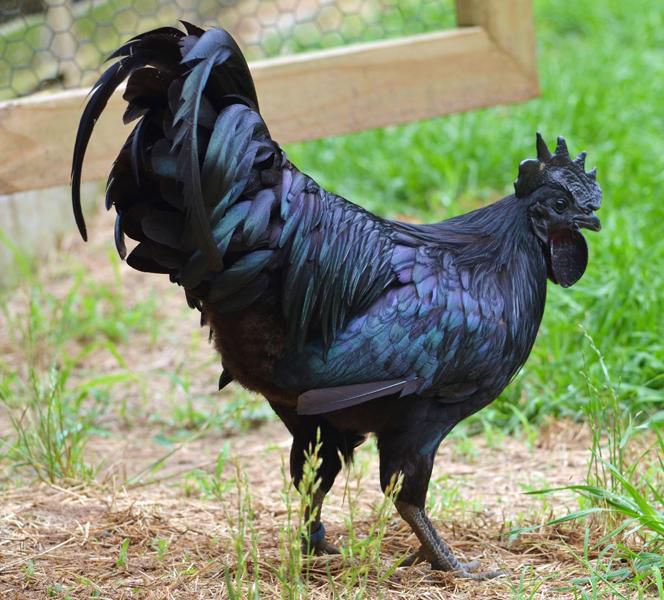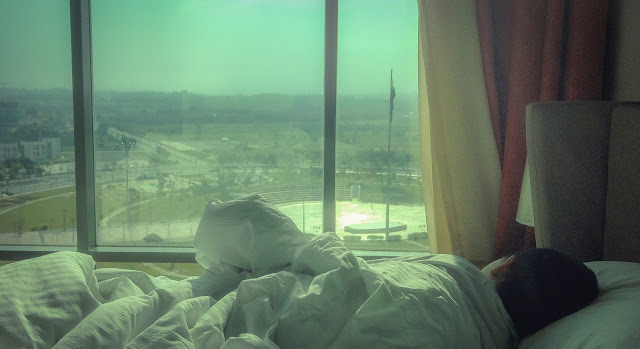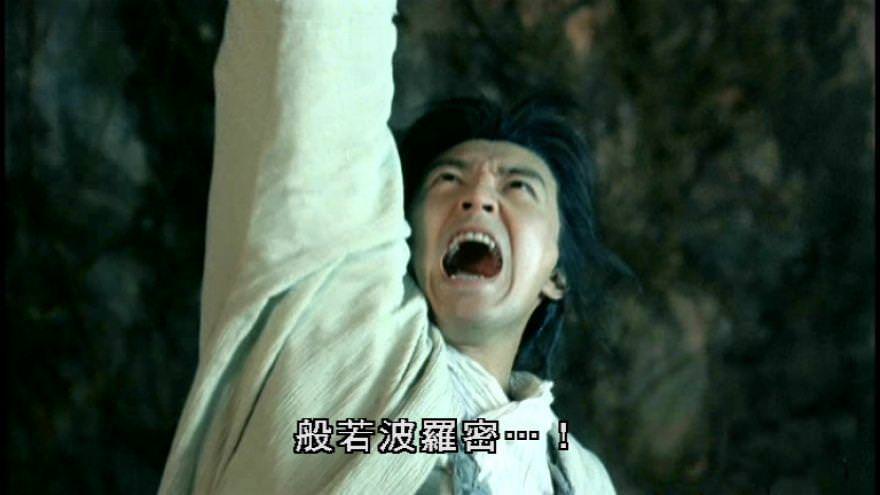Quelling the rākṣasa in the Kingdom of Kadaknath
The following is the concluding conversation between Sun Wukong and Mañjuśrī Bodhisattva in Chapter 39 of The Journey to the West. This is also the story told in the first test episode of TV-adaptation of the novel (Episode name: Quelling the rākṣasa in the Kingdom of Kadaknath 除妖烏雞國) screened by CCTV in 1982.
The conversation started with Sun Wukong reprimanding Mañjuśrī bodhisattva for not able to control his subordinates.
Wukong: Mañjuśrī, one of your vahanas escaped and turn into rākṣasa, and yet you didn’t summon him.
行者道:“菩萨,这是你坐下的一个青毛狮子,却怎么走将来成精,你就不收服他?”
The gods and goddesses in Indian mythology are always paired with a specific leg-powered vehicle or vāhana वाहन. For instances, the vāhana of Shiva is a bull named Nandi, Vishnu's vāhana is a giant bird named Garuda. It is clear that Buddhism inherited this tradition since there exists a clear one-to-one relation between the bodhisattva in Buddhism and their vāhana, for instance the vahana of Samantabhadra 普賢菩薩 bodhisattva is a white elephant, whereas the vahana of Mañjuśrī bodhisattva 文殊菩薩 is a blue lion. In Chapter 39, the the name of the blue lion is Shri 狮猁王. Note that the word qing 青 is a reference to blue and not green.
Mañjuśrī: No Wukong, he didn’t escape. He was tasked by my boss to go there.
菩萨道:“悟空,他不曾走,他是佛旨差来的。”
Wu Cheng-En describes many demons or rākṣasa in his novel, all of them left office and escaped without permission from their superiors. The Mañjuśrī's blue lion is the only exception to this pattern. In Chapter 74, Mañjuśrī's blue lion is mentioned again as on of the three rākṣasas living in the Cave of Lions and Camels 狮驼洞, but no such excuse was given by Mañjuśrī when the blue lion was summoned.
Wukong: WTF? He happily committed the crime of identity fraud and assumed the throne in the Kingdom of Kadaknath, all within the scope of the task given by your boss? He should be fined heavily for all the extra work he effected on me.
行者道:“这畜类成精,侵夺帝位,还奉佛旨差来。似老孙保唐僧受苦,就该领几道敕书。”
Bodhisattva: Let me explain. The King of Kadaknath is a kind and pious man. So my boss thought it was a good idea to ferry him to the West so that he can be knighted as suvarṇa-arhat. I turned into a monk and showed him my ritual bowl. I am not sure why but I think the King was offended by my words and thought I was a baddie. I was roped and soaked in the Royal River for 72 hours. Luckily my hexaprime shield telepathed me back home. A complaint to my boss triggered him to dispatch my vahana to dump the King to the octagon well, to repay what he did to me. The karmic plan of my boss is perfect since he was able to position you in the correct spacetime to deliver the King from the well.
菩萨道:“你不知道。当初这乌鸡国王好善斋僧,佛差我来度他归西,早证金身罗汉。因是不可原身相见,变做一种凡僧,问他化些斋供。被吾几句言语相难,他不识我是个好人,把我一条绳困了,送在那御水河中,浸了我三日三夜。多亏六甲The following ordinal positions: 甲子、甲戌、甲申、甲午、甲辰、甲寅 are collectively termed 六甲. $$10(n-1)+1, \quad n = 1, 2, \ldots, 6$$金身救我归西,奏与如来。如来将此怪令到此处推他下井,浸他三年,以报吾三日水灾之恨。‘一饮一啄,莫非前定。’今得汝等来此,成了功绩。”
Wukong: You must be happy now that the personal enmity between you and the King is now settled in full and with interest. But I suppose the rākṣasa must have done a lot of harm to the people of Kadaknath.
行者道:“你虽报了甚么‘一饮一啄’的私仇,但那怪物不知害了多少人也。”
Bodhisattva: We tracked his coordinates every day. He didn’t do anything wrong. In fact, the economy of the Kingdom of Kadaknath was quite good in the past three years. No covid, no lockdown, absolutely clear and peaceful. Zero harm done.
菩萨道:“也不曾害人。自他到后,这三年间,风调雨顺,国泰民安,何害人之有?”
Wukong: Okay. But. But he slept with the royal consorts from the three royal harems. This was against our rules of sexual abstinence. This is also against cardinal ethics in the Kingdom of Kadaknath.
行者道:“固然如此,但只三宫娘娘与他同眠同起,点污了他的身体,坏了多少纲常伦理,还叫做不曾害人?”
Bodhisattva: Actually his body is incorruptible. He is a castrated lion.
菩萨道:“点污他不得,他是个骟了的狮子。”
On hearing this, Zhu Bajie curiously leaned forward and confirmed that this was indeed the case physically. And he chuckled: what a waste of carnal opportunities.
八戒闻言,走近前,就摸了一把。笑道:“这妖精真个是糟鼻子不吃酒──枉担其名了。”
Wukong: Ok, I buy your stories. Take your vahana back with you. His fate would be routed to completely different path if you didn’t come and file this claim personally by yourself.
行者道:“既如此,收了去罢。若不是菩萨亲来,决不饶他性命。”






Comments